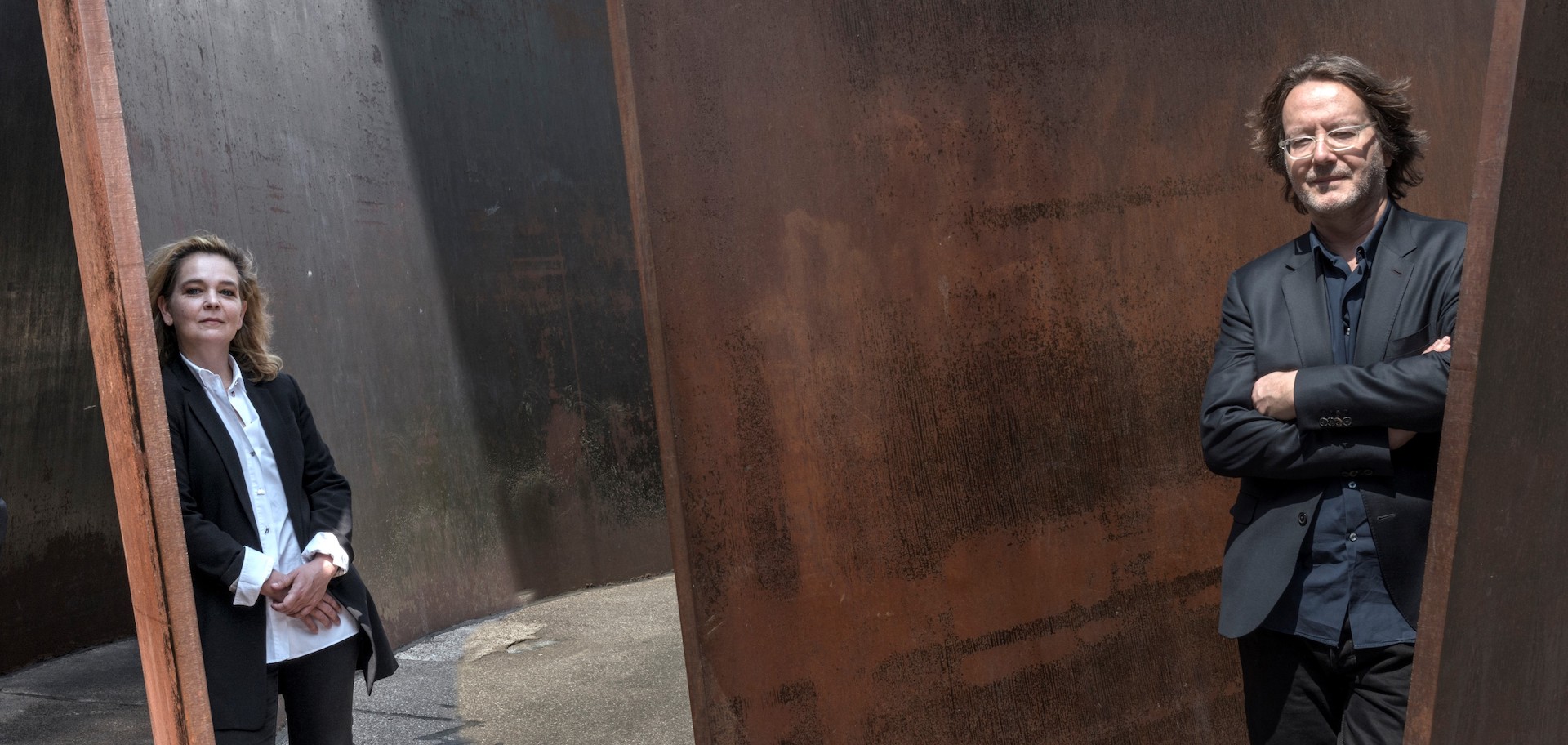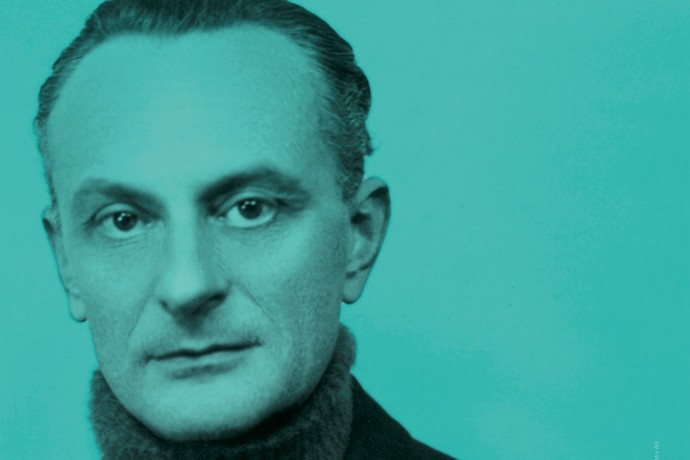Ivan Wyschnegradsky - l'éternel étranger
Day 2
Pionier der Mikrotöne

Nathalie Forget: Ondes Martenot
Susanne Huber, Tamriko Kordzaia, Stefka Perifanova, André Thomet, Ludovic Van Hellemont, Kirill Zvegintsov: Klaviere
Presentations, introductions, discussions, contemporaries with Barbara Barthelmes, Roman Brotbeck, Pascale Criton, Martine Joste, Charles Armikhanian, Anda Kryeziu, Eleni Ralli, Elnaz Seyedi
Special Guest: Paul Auster

The piano duo huber/thomet presents a two-day festival with guests from within and outside of Switzerland around the musical and visual work of Ivan Wyschnegradsky (1893-1979), the Russian-French pioneer of microtones.
Concerts, image projections, lectures, and conversations with contemporary witnesses enable diverse encounters with the sound, space, and color universe of the long misjudged artist.
An unusual set of instruments – eight concert grand pianos tuned in quarter, sixth and twelfth notes to each other, the Carillo piano tuned in sixteenth notes and the Ondes Martenot – brings unexpected worlds of sound to life. Contemporary compositions and world premieres by the young generation of female composers reflect its impact right up to the present day.
Ivan Wyschnegradsky – a materialistic mystic, sound utopian and misunderstood stranger. Above all, Vyshnegradsky is one of the most important Russian composers of the 20th century. He experimented with various microtone systems, searched for connections of colors and tones, and developed a system of two to six ‘communicating pianos’ for the performance of his works.
His music-historical significance was only recognized towards the end of the 20th century. While the post-war avant-garde was still playing with twelve-tone building blocks, he designed music-spatial concepts with which he could structurally connect the audible and inaudible world. This is still highly topical.
The festival demonstrates this topicality with performances of Vyshnegradsky’s major works, with commissions to three young female composers from Greece, Kosovo and Iran, and with works from Vyshnegradsky’s environment.
In addition, there will be commentaries, lectures and conversations with people who still met Wyschnegradsky in Paris.
The Wyschnegradsky Festival gives a comprehensive overview of his rich oeuvre in four concerts: From the late romantic early works to the fascinatingly abstract late works. His neoclassical experiments will also be heard. Works by other composers will be inserted into each of the four concerts, further expanding the spectrum of microtones.
Ali Baba conjures up culinary colors and accompanies the musical night with a three-course Oriental-Mediterranean menu. The meal with vegetarian and meat delicacies can be booked in advance as well as the brunch for the Sunday program.
11:00
Coffee
11:15
Atmosphere!
Conversations with the tuner and the ondistress
Urs Bachmann has been a sought-after tuner and piano builder for years and is also interested in all microtonal keyboard instruments. He tells about his experiences and the difficulties which arise especially in such an event with nine pianos.
Nathalie Forget presented the Ondes Martenot, an early, purely electronic instrument, whose colorfulness she increased enormously with a whole arsenal of loudspeakers.
12:00
Concert 4 : Le dernier bonheur du solitaire
The final concert spans the range from the young ecstatic Vyshnegradsky to the late pansonorous piano symphonist. In between, the delicate Memoires by Pascale Criton, who edited Wyschnegradsky’s entire writings, and a much more fragile study by his Canadian friend Bruce Mather are heard on the sixteenth-note piano. Iranian-German composer Elnaz Seyedi creates a vibrant light-filled monochrome that suspends our sense of time.
Ivan Wyschnegradsky: from Ainsi parlait Zarathoustra: «Le dernier bonheur du solitaire» op. 17 (1929–1930, 1934)
Bruce Mather (*1939) : Étude pour piano en seizième de ton (2000)
Ivan Wyschnegradsky: Prélude et fugue op. 30. (1945)
Elnaz Seyedi (*1982): only the heavy creeping wave of time for two pianos in quarter tone intervals (2022), UA
Pascale Criton (*1954): Mémoires pour piano en seizièmes de ton (1982)
Ivan Wyschnegradsky: Quatrième Fragment symphonique op. 38c (1956)
1:00
Ali Baba’s Sunday brunch
1.30
Echos. Microintervals today
Conversation with Anda Kryeziu and Eleni Ralli with recordings by Elnaz Seyedi.
The three female composers who composed works for the Wyschnegradsky Festival all dealt intensively with microintervals. Colorful works have been created that respond in different ways to Wyschnegradsky’s dream of a sound continuum: In conversation with Roman Brotbeck, the different approaches are explained and discussed.
Credits
Dank an:
Projektförderer: Dampfzentrale Bern, Impuls Neue Musik, Pro Helvetia, Kultur Stadt Bern, Swisslos Culture Canton de Berne, Burgergemeinde Bern, Ernst Göhner Stiftung, Migros Kulturprozent, SIS, GVB Kulturstiftung,
Kooperationspartner: Dampfzentrale Bern, Paul Sacher Stiftung, Association Wyschnegradsky Paris,
Urs Bachmann, Gebr. Bachmann Tasteninstrumente AG
Medienpartnerschaft: Der Bund
Das 1/16-Ton-Klavier wird freundlicherweise von der Hochschule der Künste Bern zur Verfügung gestellt.
Ruth Gilgen: Presse, Organisation
Marie Louise Suter: Grafik
Roman Brotbeck: Texte
Foto huber/thomet: Ute Schendel
Foto von Wyschnegradskys Ton- und Farbsystem © Paul Sacher Stiftung Basel
